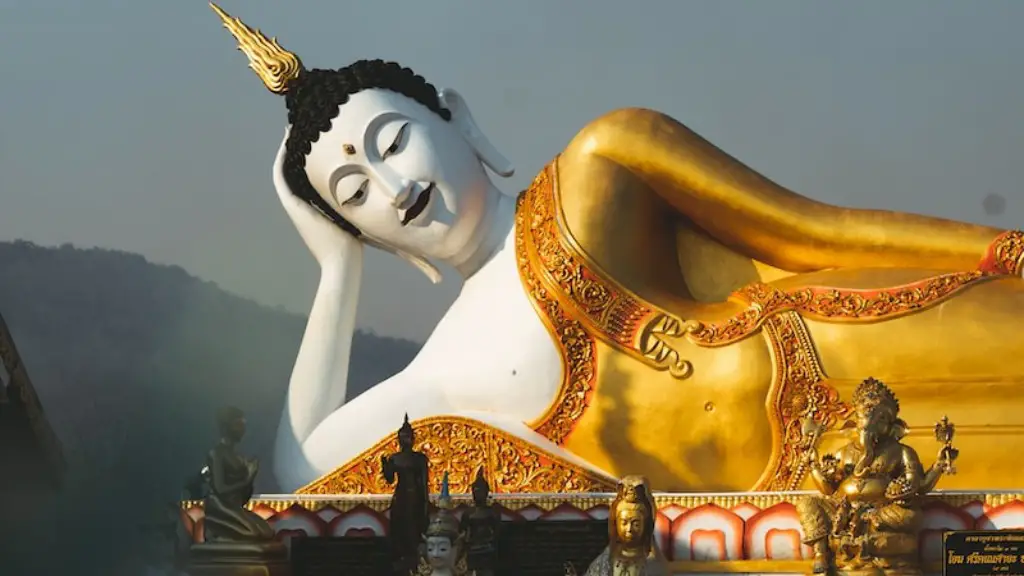Originating in the Indus Valley around 3300 and 1300 BCE, Hinduism is the world’s oldest continually practiced major religion. Most of its teachings are orally transmitted collective knowledge directly passed down by generations of Indian sages or rishis, with many ancient Sanskrit scriptures being recorded since the time of the Rigveda in the late 2nd millennium BCE.
Hinduism, as it exists today, is a synthesis of various ancient Indian traditions, including Vedism and Shaivism, with influences from Buddhism and Jainism. Its scriptures, such as the Bhagavad Gita and Upanishads, provide a concise explanation of the core concepts, such as the law of karma, and the teachings are organized into various denominations and sects based on localized interpretations.
One of the common underlying principles of Hinduism is the recognition of the unity of all existence and the concept of a single divine energy, or Brahman. This concept of Brahman is more than just a single entity, but a many-sided combination of knowledge, understanding, and power that is embodied in both the physical and metaphysical realms. The belief in a single divinity is connected to the idea that each living being has the capacity to live in harmony with the divine, or be “at one” with Him or Her, while maintaining their individual identities.
Hinduism emphasizes the importance of individual and collective spiritual growth, which can be accomplished through self-discipline, inner purification, and contemplation. Its insights into the workings of the human mind, found in the Upanishads and other scriptures, provide invaluable guidance for living a moral and fulfilling life. Additionally, spiritual teachers, such as Swamis and Voswamis, provide more direct instruction on the path to self-realization.
The core of all Hindu practice is the honoring of the divine within ourselves and in all life, whether through silent meditation or through regular rituals, pujas and festivals. The development of spiritual practices such as yoga, devotion and mantra chanting provide a wide range of techniques for connecting more deeply with the divine, from simple concentration to profound immersion in samadhi.
Additionally, Hinduism offers a non-dogmatic, tolerant and inclusive religious philosophy that allows the individual to explore their own beliefs within the broader framework of the religion. This means that while a Hindu can choose to follow the laws and practices of their particular denomination, they remain open to the possibility of incorporating the beliefs of other sects into their own spiritual practice.
Impact of Hinduism
The influence of Hinduism can be seen in many aspects of Indian culture, including art, architecture, music, dance, mythology, medicine, philosophy, and cuisine. Its practice has endured since antiquity, with millions of Hindus around the world celebrating the ancient festivals of Holi, Diwali, and Janmashtami. It has also spread beyond its birthplace with some of its flavors reaching countries such as Malaysia and Indonesia. One of the most striking features of the faith is its adaptability, enabling it to meet the demands of modern society.
Practitioners believe that the teachings of Hinduism can provide inner peace and joy, as well as a means to discover the universal truths that are at the heart of all religious traditions. Interestingly, Hinduism also allows people to explore their own personal beliefs while continuing to honor their culture, allowing practitioners to connect to a deep sense of rootedness that’s been handed down through centuries.
Moreover, Hinduism provides a framework of ethics and moral development, reminding individuals to stay mindful of their responsibilities towards others. Difficult social issues can be seen in a spiritual context, and Hindu teachings provide guidelines for living a life of selfless service for the benefit of humanity.
Hinduism and Conservation
Hinduism has also been used to help spread awareness about environmental conservation and preservation. For example, one of its core teachings is ahimsa or non-violence towards all living beings, which encourages a respect for plants and animals. Furthermore, devotion to the divine as embodied in plants, animals and natural phenomena is exercised in its rituals and celebrations.
The origin of the Hindu practice of being mindful of the environment can be seen in its ancient scriptures, where the Rig Veda mentions the importance of protecting the earth, while the Aranyaka recommends taking steps such as not cutting down trees and not hunting during certain seasons. Similarly, the Bhagavata Purana prescribes respecting water bodies and wildlife, while the Laws of Manu encourage the preservation of all living beings and nature.
Within modern Hinduism, environmental activism is being practiced more widely, such as in the Chipko movement of the 1970s, where people participated in nonviolent protests to protect the forests from being destroyed by the government. Similarly, in India today, organizations such as the Sadhana Forest are working to reverse the effects of deforestation through reforestation initiatives, rooted in ancient Hindu traditions.
Controversies of Hinduism
Although Hinduism has many positive and meaningful aspects, there are also some controversial aspects that have come up in recent times. These primarily relate to the caste system, which is still observed in Indian society, and widely considered to be oppressive by many followers of the faith. Additionally, there have been instances of gender inequality and sexism in the interpretation of Hindu religious texts, which have been widely criticized.
Moreover, there is a perception of Hinduism being exclusionary, as often seen in the exclusion of certain minority groups in the practice of the religion. Furthermore, the exploitation of labour and resources by unscrupulous businessmen in the name of religious practices has caused a lot of controversy. These days, many organizations are working to shift away from these old-fashioned practices, and strive to create a more equitable and inclusive Hindu faith.
Hinduism Today
Today, Hinduism continues to be a living faith, with its tenets and practices still relevant in modern society. Additionally, its beliefs and teachings are often adapted and refined to meet the demands of a changing world. Moreover, its followers continue to find spiritual solace and guidance from its ancient texts and modern spiritual teachers. Additionally, organizations like the International Society for Krishna Consciousness (ISKCON) have helped spread the religion to new countries, while Hindu organizations in India have been instrumental in preserving its rich tradition.
In the last few decades, Hinduism has also taken a leading role in interfaith dialogue, creating a platform for adherents of different religions to engage in meaningful conversations and learn to accept each other’s beliefs. Therefore, while there may be challenges to Hinduism in this day and age, it remains one of the most complex and vibrant religious traditions in the world.
Contributions of Hinduism
Hinduism has had a great impact on the world, making significant contributions to the fields of literature, music, philosophy, mathematics, science, and medicine. For example, the works of great Hindu teachers and philosophers such as Patanjali and Radhakrishnan helped further the development of yoga and philosophical thought. Additionally, the discoveries of Nobel Prize-winning physicist Subrahmanyan Chandrasekar and Nobel Prize-winning physicist Satyendra Nath Bose have had major implications on the field of physics.
Furthermore, the concept of zero was first developed by Hindu mathematicians, and subsequently adopted by Arab mathematicians, before becoming a key feature of mathematics in the West. Similarly, Hindu medicine, especially the Ayurvedic tradition, has provided profound insights into the interaction between body and mind, as well as the effects of different herbs and spices on health.
Moreover, Hinduism has symbolized a strong ethical message to the world, with its celebration of virtues such as generosity, hospitality, co-operation and brotherhood. Additionally, it has also enriched the world through its art, literature, music and mythology. Thus, Hinduism has made a lasting impact on the development of global culture, offering an inexhaustible store of wisdom and a vibrant spirituality that can offer inspiration to people of all faiths.
Influence Beyond India
Hinduism has spread to other parts of the world, such as South-East Asia, the Caribbean and Fiji, through migrants and expatriates in recent times. Additionally, Vedic Culture and Hindu teachings have been embraced by some westerners, and has seen a revival in the US and UK, offering spiritual options to those looking for alternatives to traditional religions.
Furthermore, Hinduism has had a huge influence on South and South-East Asia, having been adopted in many countries including Nepal, Sri Lanka, Indonesia and Thailand. Additionally, Hindu texts and teachings have been influencing practitioners of the Bön tradition in Tibet for centuries. Consequently, Hinduism has spread beyond its birthplace and continues to be embraced by people from all walks of life.
In conclusion, Hinduism is one of the world’s oldest spiritual traditions, and continues to be deeply relevant in the lives of millions of people around the world. Its powerful teachings are both accessible and meaningful, and its commitment to non-violent co-existence with nature is unparalleled. It is no wonder that Hinduism has spread over the centuries, offering a set of still-relevant beliefs and practices to people of all backgrounds.



